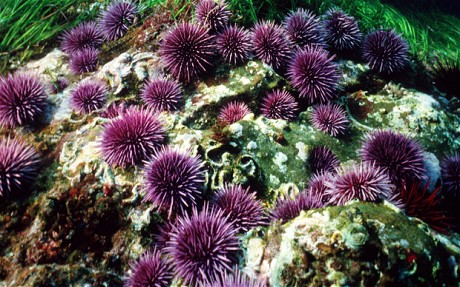1. Don't Shrink Australia's Ocean Sanctuaries!
The Australian government is currently going through a review of the size of the ocean sanctuaries in hopes to reduce the area to increase areas permitted for commercial fishing. There has not been any scientific review of the implications of rezoning. Australia's leading scientists are now pushing back and presenting the detrimental effects that this could have on the ecosystem that the nation has worked for years to preserve. In 2012 the decision was made to protect more than 2.3 million square km of ocean and offered $100m in compensation to the fishing industry. The current environment minister Greg Hunt states that " unlike the previous government, we are committed to getting the management plans and the balance of zoning right". Read more...
-----------------------------------------------
2. Ocean Plastics Continue to Impact the Ecosystem
A recent estimate puts the amount of plastic floating in the world's oceans at more than 5.25 trillion pieces, weighting more than 268,000 metric tons. This week, a number of studies were published discussing the changes caused by ocean plastic.
The first story we will review discusses the introduction of microbes into the oceans. The foreign microbes use the plastics as a resident to float through the oceans. These floating synthetic dwellings and their microbial inhabitants are referred to as the plastisphere. The impact of the plastisphere is still being determined. Read more...
This week, a study was published in Nature that discussed the impact of ocean plastics on oysters. The team of scientists studied Pacific oysters in water laced with micrometre sized polystyrene spheres. The study reveals that oceans consuming these small pieces of plastic litter produce fewer and less robust offspring. Read more...
The first story we will review discusses the introduction of microbes into the oceans. The foreign microbes use the plastics as a resident to float through the oceans. These floating synthetic dwellings and their microbial inhabitants are referred to as the plastisphere. The impact of the plastisphere is still being determined. Read more...
This week, a study was published in Nature that discussed the impact of ocean plastics on oysters. The team of scientists studied Pacific oysters in water laced with micrometre sized polystyrene spheres. The study reveals that oceans consuming these small pieces of plastic litter produce fewer and less robust offspring. Read more...
-----------------------------------------------
3. Why Studying Fertility in Sea Urchins Makes Sense
A book was recently written by Marah J, Hardt entitled Sex in the Sea: Our Intimate Connection with Sex- Changing Fish, Romantic Lobsters, Kinky Squid, and Other Salty Erotica of the Deep. Although the book has a racy title, it discusses reproduction of marine species and the scientific value of studying the fertilization processes. One example included in the book is sea urchin fertilization. Hardt describes the process and draws the connection to the similarities that it has to our current day fertility treatments and IVF. This is just another example of the innovations that we can develop from nature. Read more...
-----------------------------------------------
4. Catastrophic Failure of Ice Age Dam Changed Ocean Circulation and Climate
 A study performed by scientists at the University of Bristol and Aberystwyth University discusses the catastrophic release of fresh water from a vast South American lake at the end of the last Ice Age. The full publication in Scientific Reports reveals that the lake, which was about one third the size of Whales, drained everal times between 13,000 and 8,000 years ago, with devastating consequences. The draining impacted the circulation and regional climate of the Pacific Ocean. Read more...
A study performed by scientists at the University of Bristol and Aberystwyth University discusses the catastrophic release of fresh water from a vast South American lake at the end of the last Ice Age. The full publication in Scientific Reports reveals that the lake, which was about one third the size of Whales, drained everal times between 13,000 and 8,000 years ago, with devastating consequences. The draining impacted the circulation and regional climate of the Pacific Ocean. Read more...
-----------------------------------------------
-----------------------------------------------
Be sure to "LIKE" http://facebook.com/SeaSave to ensure our "Week in Review" is delivered to your newsfeed every Thursday.
Sea Save Foundation is committed to raising awareness of marine conservation. The Week in Review is a team effort produced by the Sea Save staff to provide a weekly summary of the latest in marine research, policy, and news.

